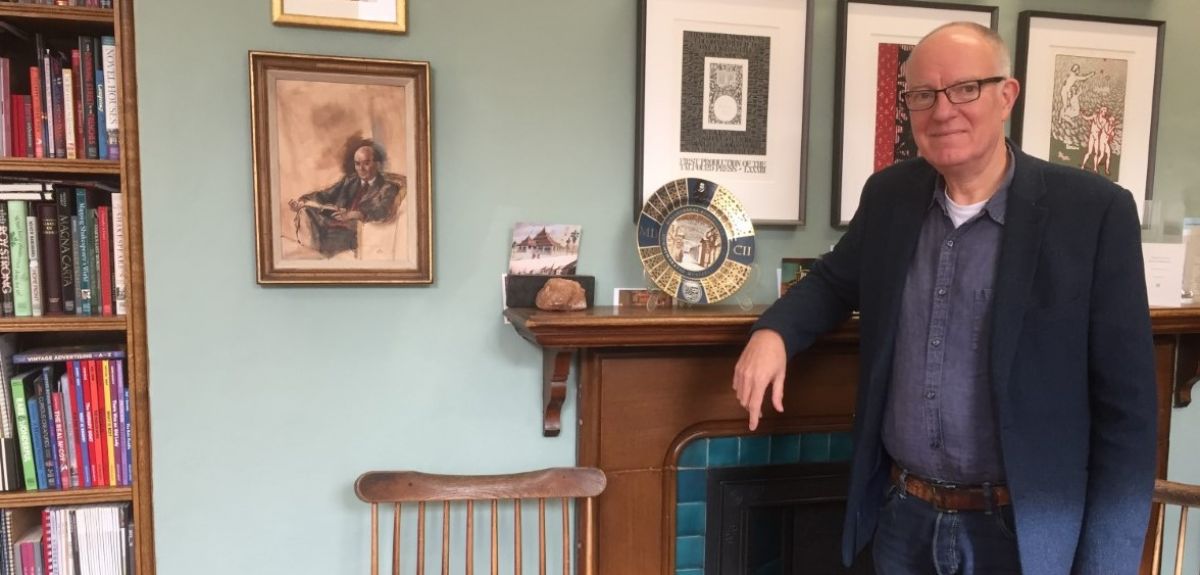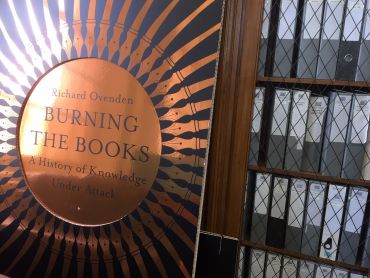
Knowledge under attack: Bodleian’s chief librarian turns cyber campaigner
In a wood-panelled office with an enviable view of Oxford’s most iconic sights, Richard Ovenden might seem an unlikely cyber campaigner. But the latest holder of the historic post of Bodley's Librarian (chief librarian of the Bodleian) fears ‘knowledge is under attack’ from the impact of the online world on public discourse and decision-making. And preserving such knowledge is very much Professor Ovenden’s business.
Listen to Richard Ovenden's frank interview here:
In his recent work, Burning the Books: A History of Knowledge Under Attack, he has taken to the metaphorical barricades over the challenges of ephemeral digital discourse to the work of libraries and archives. But his concerns go far wider – and he warns of the impact on society more broadly of digital communication. One aspect in particular is a current concern: when communications between Cabinet Ministers and civil servants and special advisers take place on digital platforms, with end-to-end encryption, where, he fears, will the checks and balances be?
 Burning the Books marketing material leaning against book shelf in Richard Ovenden's office
Burning the Books marketing material leaning against book shelf in Richard Ovenden's officeWhat will it mean for accountability, when public figures act with a sense of impunity given by secret digital platforms? Will the only sources available to future historians be self-serving memoirs?
As Bodley's Librarian, the 25th in the library’s 420 years, he takes a long view of such things. Tech may be a very modern threat, but Richard sees it as the latest in a long line of attacks on knowledge. He notes this included the destruction of Oxford’s University library at the time of the Protestant Reformation, which led to the creation of the Bodleian - an ‘Ark’ to save knowledge from the ravages of the era.
To restore accountability – and to ensure libraries such as the Bodleian can carry out their historic record-keeping role – Richard argues new measures are urgently needed to preserve communications, many of which are currently only available to big tech firms. It is a massive task. We are writing more than ever – with email and social media often replacing conversation and more formal correspondence.
Richard argues new measures are urgently needed to preserve communications, many of which are currently only available to big tech firms. It is a massive task. We are writing more than ever
Not everything needs to be kept, though. Libraries are already maintaining huge amounts of data, but many records are being lost – because they are undertaken on platforms controlled by the commercial tech industry. Considerable extra resources and a combined effort from libraries and archivists will be needed, and Richard has mooted a ‘memory tax’ on the tech firms, to pay for it. But, it is essential if we are to preserve knowledge that is now created and managed on digital platforms. Many of these are currently set to be lost to posterity – along with all those family photos on smart phones.
It will not be possible, or desirable, to keep everything, says Richard. But, in addition to communications between government officials, there is a real purpose in maintaining samples of communication on social media platforms. Just as the public records today include fascinating insights into the lives of people in the past, because of chance remarks on the margins of official documents, social media provides insight into 21st century life – warts and all.
Richard Ovenden was in conversation with Sarah Whitebloom; audio recorded and edited by Ruth Abrahams